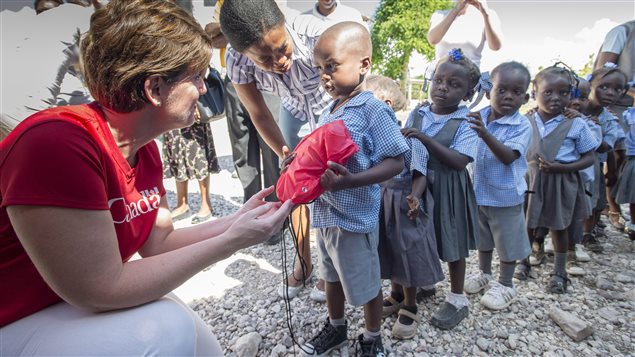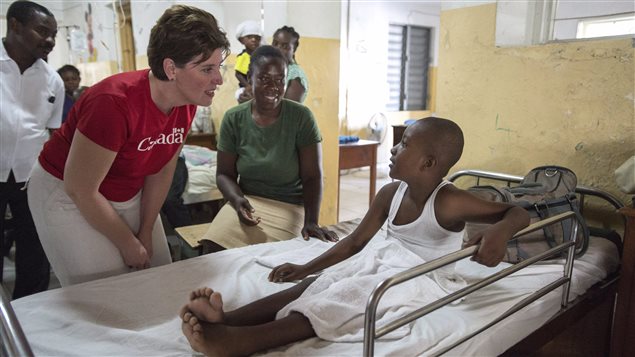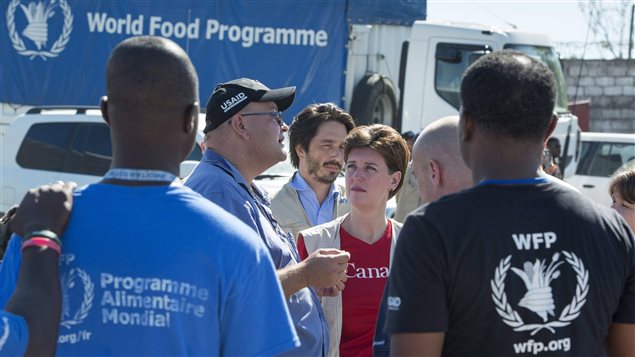Canada will give $54 million to Haiti over the next five years, including more than $2 million in immediate aid, International Development Minister Marie-Claude Bibeau said Friday.
Bibeau announced the new funding, which comes on top of $6.08 million Canada has already committed to help Haiti deal with the devastating effects of Hurricane Matthew, on the final day of her three-day trip to the Caribbean country.
Most of the money — about $50 million — has been set aside for developing long-term projects in the agriculture sector.
“The most important portion of this announcement today is a call for proposals,” Bibeau said in a phone interview with RCI from Haiti. “We’re asking our Canadian and international partners to submit proposals, projects that are focused on sustainable agriculture, to strengthen agrifood value chains and adaptation to climate change.”
(click to listen to the full interview with Marie-Claude Bibeau)
ListenOttawa is also adding another $2.65 million for the immediate post-hurricane aid to the population, Bibeau.
And $1.4 million has also been earmarked for Haitian elections, which begin on Sunday after numerous disputes and delays.
Having a democratically elected, stable government in Haiti is extremely important for Canada’s continued development programs in Haiti, Bibeau said.
“We hope that this new government will be stable and that we will be able to have these counterparts to work with,” Bibeau said.
Canada will help with voting logistics and provide independent observers.

On Thursday, Bibeau said she had a chance to visit some of the hardest hit areas.
Accompanied by the Canadian Ambassador Paula Caldwell St-Onge, she travelled to the region by helicopter and saw for herself the devastating effects of the storm that claimed more than 1,000 lives in Haiti alone.
She spent the day in Grand’Anse, one of 10 Haitian departments, which includes the cities of Jeremie and Les Cayes, where the hurricane made landfall.
In the community of Camp-Perrin she had the opportunity to visit a local school with no roof or walls, where the kids’ lessons were held largely outdoors, Bibeau said.

She had an opportunity to personally distribute school supplies to children and talk with teachers, who are participating in a Canadian-funded program to train them so they can help children deal with the mental trauma of the hurricane and its aftermath, Bibeau said.
In Les Cayes she also visited a maternity ward, a family planning clinic and a cholera hospital, Bibeau said.
“It’s very touching to see this very basic, simple infrastructure but with all these doctors and nurses working so hard to support this population that has been affected very hard.”
With files from The Canadian Press







For reasons beyond our control, and for an undetermined period of time, our comment section is now closed. However, our social networks remain open to your contributions.